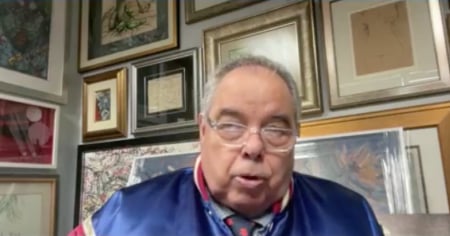The young Cuban, Beatriz Monteagudo Castillo (August 28, 1999), explained in statements to CiberCuba that being "locked up" in the Otay Center in San Diego, California, is "horrible," a "very tough situation," considering that she has not committed any crimes and that upon entering through the Mexico border, she was given an I-220A. Furthermore, she already has her asylum application in process in the United States.
Monteagudo was arrested on March 10 after attending her appointment at the Immigration (ICE) office in Miramar (Broward). On March 15 she was moved to a regular prison, where she shares space with women who have committed all sorts of minor offenses.
"Being locked up here, it's inevitable to think about so many things. From the very moment you entered this country to the situation you find yourself in now. It's terrible because there are moments when you have hope, you have faith that you'll get out, that you'll be able to pay for a lawyer, that you'll be able to handle your case. I have my political asylum, and I know I'm going to fight for it and win, but then you start hearing stories from everyone; you feel crushed, you get depressed, because you don't know where this situation is headed... Many encourage you and tell you that there are good judges, while others say that judges don't care about you, that when they get to court, they've already made their decision. The tension you feel inside is horrible; plus the worry of not getting sick because you don't eat well, you don't sleep well; and the stress of not knowing what will happen. The truth is, it's an incredibly tough situation," she said.
The young woman, one of the first Cubans detained under I-220A, explains that she left Cuba after graduating as a medical technician. She entered the United States through the border with the intention of working and studying. "I wanted to have my own income, to build my own life, a normal life; to obtain my residency to have a legal status in the country; not to go to Cuba, I had no intention of going back to Cuba from the moment I arrived in this country. I wanted to live my life as a good person. I have no criminal record; I have not committed any crimes, I have done nothing wrong. I have only focused on doing things right in this country since the moment I arrived," she added.
Right now, all the Cuban women with I-220A, detained by ICE and currently at the Otay Center in San Diego, are mired in uncertainty because the lawyers are not providing answers and are not changing the court venues to California. "We don’t know what’s going to happen," she said.
It also explains that the lawyers who have submitted the motion to the alleged deporter, who is an ICE agent, are not receiving any response. "Supposedly, the bond must be submitted before the judge, but since the court has not passed it to us, ICE has told us that the judges in Miami no longer have jurisdiction over Cubans with I-220A."
When asked by CiberCuba about her plans for the future, Beatriz Monteagudo responded that she has "the same goals" since she arrived in the United States: to work, study, and build her life. "I want to build my future in this country; my family, my children. I left my country with the aim of coming here and starting my life from scratch. I didn't want my children to be born under a dictatorship. I wanted my children to be born in a free country," she concluded.
After the arrest of Beatriz Monteagudo, a friend of the young woman, who turns 26 this year, started a petition on GoFundme.com to raise funds to pay for a lawyer. So far, they have only been able to gather $3,600. Beatriz's mother has asked for help from all Cubans, especially those from Sancti Spíritus residing in the United States, as the family is from Sancti Spíritus.
In principle, immigration lawyer Willy Allen stated in an interview with CiberCuba, that Cubans with I-220A would neither be detained nor deported. However, there have been some detentions. Republican Congresswoman María Elvira Salazar intervened and spoke with senior ICE officials to stop the detentions of Cubans with I-220A and following her mediation, no further arrests have been reported.
She has promised to grant legal status to Cubans with I-220A. Her idea is to provide them with parole so that they can benefit from the Cuban Adjustment Act. Willy Allen believes it is not necessary, as the congresswoman wants, to present a legislative proposal in Congress. In his view, it would suffice for the Department of Homeland Security to sign an administrative order acknowledging that Cubans with I-220A can apply for the Adjustment Act because they have been interviewed and admitted to the United States, the two requirements that need to be fulfilled to apply for Adjustment.
Filed under:
